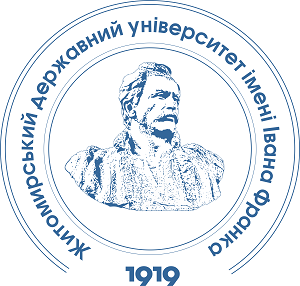UNIVERSAL MENTAL HEALTH TRAINING FOR FRONTLINE PROFESSIONALS: METHODOLOGY, STRUCTURE, IMPLEMENTATION
DOI:
https://doi.org/10.32782/psy-2024-4-10Keywords:
mental health, mental health disorder, stigma, mental health status validation, universal mental health training.Abstract
Abstract. This article describes the results of developing the Universal Mental Health Training (UTMH) program, which aims to train first-line professionals to interact with people with mental health difficulties. To increase the availability and coverage of the population in the field of mental health services, the principle of delegating the function of primary psychosocial support of persons with mental disorders to trained specialists of the first line applies throughout the world. Universal training on mental health issues, which was developed and piloted in Ukraine, is an educational program for first-line specialists on high-quality and scientifically based responses when interacting with people who need help with mental health issues. Such specialists are employees of the police, state emergency services, social services, employment centers, educational institutions, and others who communicate with many people every day. The training is called universal because its 5-step model offers a standard structure for interacting with people with mental health difficulties. In addition, this algorithm is suitable for various first-line specialists, since the general structure of interaction does not change, but only the list of mental disorders that are most often faced by specialists of one or another field changes in their work. The program teaches five relatively simple but important steps: recognizing a mental health condition, starting a conversation about mental health and reducing stigma, providing support and hope for an improved quality of life, making a referral for professional help, and ensuring that referral is successful. It is assumed that the criteria for the effectiveness of the developed program can be indicators related to knowledge about the state of mental health, awareness about mental health, and increased readiness to interact with people who have mental health difficulties. Further studies on the implementation of UTPZ in Ukraine and evaluating the effectiveness of the developed intervention will be carried out according to the above indicators.
References
Універсальний тренінг із психічного здоров’я (УТПЗ) для фахівців першої лінії : посібник для тренерів / Горбунова В. та ін. 2-ге вид., доп. і перероб. 2022.
Anderson M., Werner-Seidler A., King C. et al. Mental health training programs for secondary school teachers: a systematic review. School Mental Health. 2019. Vol. 11(3). Р. 489–508.
APA: Diagnostic and statistical manual of mental disorders: DSM-5. American Psychiatric Association. Arlington, VA, 2013.
Blau F. D., Koebe J., Meyerhofer P. A. Who are the essential and frontline workers? Bus Econ. 2021. Vol. 56(3). Р. 168–178.
Mental health training programmes for non-mental health trained professionals coming into contact with people with mental ill health: a systematic review of effectiveness / Booth A., Scantlebury A., Hughes-Morley A. et al. BMC Psychiatry. 2017. Vol. 17(1). Р. 196.
Supporting and sustaining non-specialists to deliver mental health interventions in Low-and Middle-Income Countries: an umbrella review / Bunn M., Gonzalez N., Falek I. et al. Intervention. 2021. Vol. 19(2). Р. 155–179.
WHO mental health Gap Action Programme Intervention Guide (mhGAP-IG): the first pre-service training study / Chaulagain A., Pacione L., Abdulmalik J. et al. International Journal of Mental Health Systems. 2020. Vol. 14(1). Р. 47.
Derzhspozhyvstandart of Ukraine: Держспоживстандарт України. Класифікатор професій ДК 003: 2010. Держспоживстандарт України; Наказ, Класифікатор від 28.07.2010 № 327. 2010.
Fiske Z. R., Songer D. M., Schriver J. L. A national survey of police mental health training. Journal of Police and Criminal Psychology. 2021. Vol. 36(2). Р. 236–242.
Mental Health and Psychosocial Support in Ukraine: Coping, Help-seeking and Health Systems Strengthening in Times of War / Frankova I., Bahmad M. L., Goloktionova G. et al. ARQ National Psychotrauma Center & VU Amsterdam. 2024.
Establishing the role of the pharmacist in mental health: implementing Mental Health First Aid into the doctor of pharmacy core curriculum / Frick A., Osae L., Ngo S. et al. Currents in Pharmacy Teaching and Learning. 2021. Vol. 13(6). Р. 608–615.
Effectiveness of peer-delivered interventions for severe mental illness and depression on clinical and psychosocial outcomes: a systematic review and meta-analysis / Fuhr D. C., Salisbury T. T., De Silva M. J. et al. Social Psychiatry and Psychiatric Epidemiology. 2014. Vol. 49(11). Р. 1691–1702.
Gorbunova V., Klymchuk V. Universal mental health training pilot trial in Ukraine. [Data set]. Zenodo. 2023.
Mental Health First Aid is an effective public health intervention for improving knowledge, attitudes, and behaviour: a meta-analysis / Hadlaczky G., Hökby S., Mkrtchian A. et al. International Review of Psychiatry. 2014. Vol. 26(4). Р. 467–475.
Applying systems thinking to task shifting for mental health using lay providers: a review of the evidence / Javadi D., Feldhaus I., Mancuso A. et al. Global Mental Health (Camb). 2017. Vol. 4. e14.
Kitchener B. A., Jorm A. F. Mental Health First Aid: an international programme for early intervention. Early Intervention in Psychiatry. 2008. Vol. 2(1). Р. 55–61.
Morgan A. J., Ross A., Reavley N. J. Systematic review and meta-analysis of Mental Health First Aid training: effects on knowledge, stigma, and helping behaviour. PLoS One. 2018. Vol. 13(5). e0197102.
Mental health stigma in Ukraine: cross-sectional survey / Quirke E., Klymchuk V., Suvalo O. et al. Global Mental Health (Camb). 2021. Vol. 8. e11.
How is mental health care provided through community pharmacies? A quest for improvement / Samorinha C., Saidawi W., Saddik B. et al. Pharmacy Practice. (Granada). 2022. Vol. 20(2). Р. 2648.
Implementing mental health training programmes for non-mental health trained professionals: a qualitative synthesis / Scantlebury A., Parker A., Booth A. et al. PLoS One. 2018. Vol. 13(6). e0199746.
Thomas S., Watson A. A focus for mental health training for police. Journal of Criminological Research, Policy and Practice. 2017. Vol. 3(2). Р. 93–104.
A national train-the-trainer program to enhance police response to veterans with mental health issues: primary officer and trainer outcomes and material dissemination / Weaver C. M., Rosenthal J., Giordano B. L. et al. Psychological Services. 2022. Vol. 19(4). Р. 730–739.
WHO: mhGAP intervention guide for mental, neurological and substance use disorders in non-specialised health settings: mental health Gap Action Programme (mhGAP). World Health Organization, 2016.






